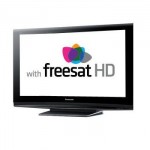Freesat outlines app strategy
March 12, 2013
By Colin Mann
 Giles Cottle, Head of Strategy at UK free-to-air digital satellite service Freesat has outlined the platform’s apps strategy following the successful launch of YouTube for Freesat’s connected TV users.
Giles Cottle, Head of Strategy at UK free-to-air digital satellite service Freesat has outlined the platform’s apps strategy following the successful launch of YouTube for Freesat’s connected TV users.
Writing in the Freesat blog, he suggests that in some ways, it is easy to see why TV is seen as a natural next step for an app platform. “TV has taken some major inspiration from mobile in recent years, user interfaces being an obvious example. Today, almost every TV manufacturer also offers apps as part of their latest ranges of smart devices. But should they bother?” he asks.
According to Cottle, the debate on the merits of TV apps has been done to death in recent years, with many questioning the merits of the TV as an app platform. “The key arguments centre around the TV being a shared, not personal, device, and that it is a lean-back medium that people are less likely to want to interact with than their phones. Our own viewer research at Freesat shows a sharp divide between ‘passive’ viewers and ‘active’ TV planners,” he reveals.
He says that Freesat’s interest in this debate has been rekindled by some of the subtle changes that the major TV manufacturers and platforms have made in their platforms this year, suggesting apps are becoming less of a priority for them. “It’s very noticeable that Samsung has demoted apps within its 2013 line-up of Smart TVs. Apps were front and centre of their 2011 and 2012 TVs; now, they are relegated to their own section of the UI. UPC’s Horizon service also has apps, but they too are very much a secondary part of the experience,” he observes, suggesting that the inference is ‘less is more’, questioning how many apps on smartphones are used frequently. “A quick poll of the Freesat office puts the number at five to six – which, coincidentally (or not) is also about the average number of TV channels that people habitually watch and revert to,” he notes.
He admits that this is not to say that non-video apps have no place on the TV. “The BBC revealed in 2010 that 12.7 million people used red button services every week. But great programming remains key to the TV experience. If our customers start asking, en masse, for a smartphone-like variety of apps on the TV, then we would look again. But for now, most still want their TV to do what TV is supposed to do – deliver great programmes that they can find quickly and easily. Whether there is an appetite for more remains to be seen,” he concludes.
